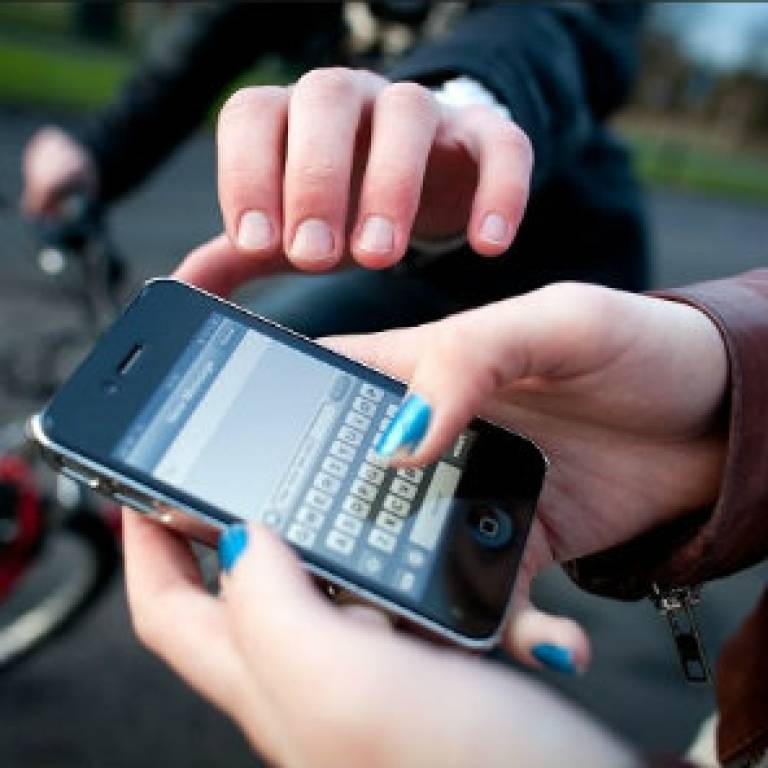Increase in phone snatch crimes in Bloomsbury
6 February 2015
In recent weeks there have been further reports of phone snatch crimes taking place in the streets around the UCL Bloomsbury Campus.

These crimes involve one or two people on a push or motorbike riding past someone (normally approaching from behind) and snatching an
item from their person, such as phones, bags and jewellery, riding off before
the victim realises what has happened.
These crimes are also being carried out by groups of cyclists - all dressed similarly to make it harder to identify the culprit.
These crimes have not occurred on the UCL campus but do occur very close by, as well as other locations across London and many of our students and staff have become a victim of this crime.
For this reason, UCL Security is highlighting this latest rise and informing students and staff what they can do to prevent becoming a victim.
Phones contain valuable data, whether that's downloaded music and films, or personal information and, as a result, they can be a very tempting target for thieves.
There are some simple steps that you can take to protect your mobile phone.
Be aware of your surroundings
Don't make it easy for criminals. Think before you use your phone in public or on public transport.
Keep calls in public places as brief as possible, the longer you talk, the more likely you are to be spotted by a potential thief.
Walking and texting at the same time can be dangerous, especially when near or crossing the road. You will be less aware of what is happening around you.
When you get off a bus or leave a tube or train station, don't use your phone immediately, leave it a while.
If you have to use the phone then walk as close as you can to buildings keeping your phone on the side of the building.
If you're not making a call, make sure that your phone is hidden away.
Don't leave your phone on tables in cafes or bars. Thieves might try to distract you by placing tube maps or magazines on top of your phone while asking you a question and then will simply pick up their item and your phone.
Try to avoid using your mobile phone in public at night. If you do have to use your phone, try to find an area that's well-lit.
Use the security features provided
Keep a record of your phone's IMEI number - just type *#06# (star, hash, 06, hash) into your phone and it will display a 15 digit number. You can use this number to register your phone free at www.immobilise.com.
You stand a very good chance of getting your phone back when stolen, particularly if the matter is reported to the police quickly. Don't wait until you get home. Get someone to ring the police on 101.
Many of the latest mobile phones have apps that can help you find your phone. Make sure you download one of these apps and have them on your phone, as they are free. If your phone is stolen, tell the police about your app.
Know what to do if it is stolen
If you do have your phone stolen, remember don't fight back. It is much safer to give them what they want than get hurt or injured.
If your mobile phone is stolen, you must get it blocked by calling your service provider.
Follow @UCLSecurity on Twitter for security news updates and advice.
For any other queries, please contact Oliver Curran.
Useful Links
This article was updated on 6 March 2015 following further reports of phone snatch crimes in the Bloomsbury area.
UCL Security
 Close
Close

